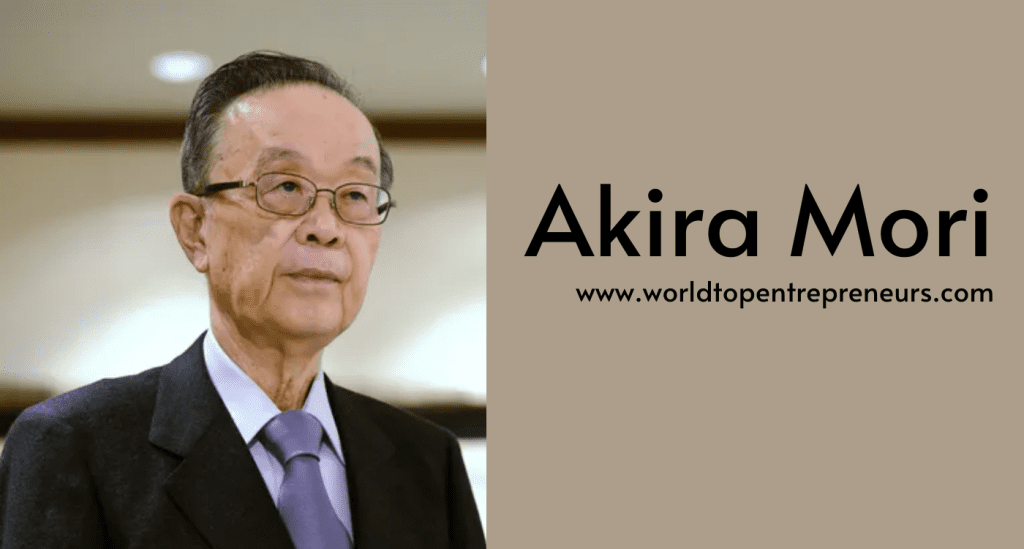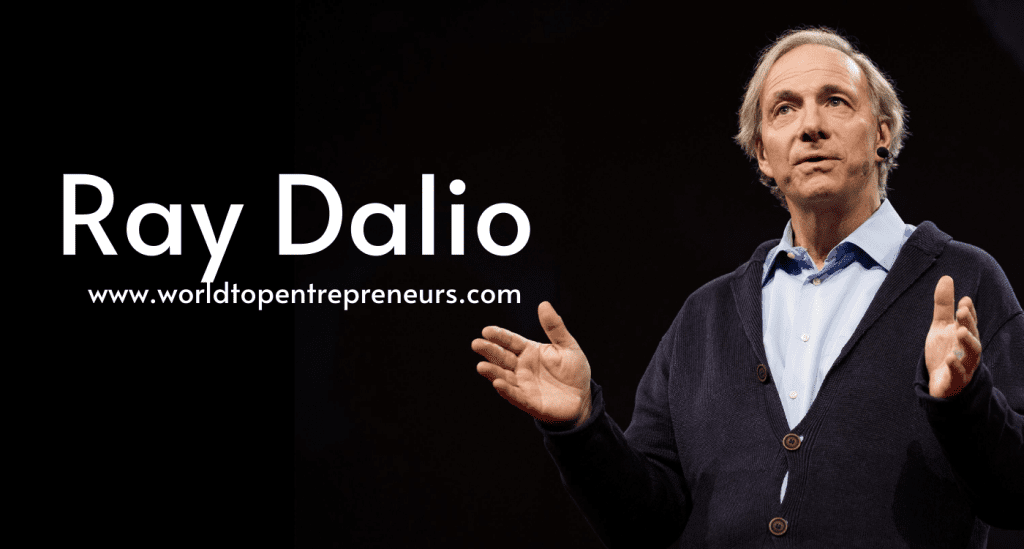In the sprawling world of real estate development and investment, some figures stand out for their transformative impact and visionary leadership. Akira Mori, the founder of Mori Trust Co., Ltd., is a prime example of such a figure. His journey from a young entrepreneur to the driving force behind one of Japan’s leading real estate firms is a story of ambition, innovation, and enduring influence. Akira Mori’s contributions to the real estate industry have not only shaped the skyline of Tokyo but have also set new standards in urban development and investment.
Early Life and Foundations
Akira Mori was born on December 11, 1946, in Tokyo, Japan. Growing up in a post-war Japan, Mori was witness to a nation in the throes of recovery and rapid modernization. The 1950s and 1960s were transformative years for Japan, marked by economic growth, urban expansion, and significant societal changes. These developments had a profound impact on Mori, fueling his ambition and shaping his future endeavors.
Mori’s academic journey took him to Keio University, one of Japan’s most prestigious institutions, where he pursued a degree in economics. His time at Keio University was crucial in shaping his understanding of business, finance, and real estate. The economic theories and business principles he learned during his studies provided him with a solid foundation for his future career.
After graduating, Mori entered the real estate sector, initially working in various roles that provided him with valuable industry experience. His early career was marked by a deep commitment to understanding the intricacies of real estate development, investment, and management. This period of learning and growth was instrumental in preparing him for the challenges and opportunities that lay ahead.
The Founding of Mori Trust Co., Ltd.
In 1970, Akira Mori took a bold step by founding Mori Trust Co., Ltd. The company was established during a period of significant change in Japan’s real estate market. The 1970s were characterized by rapid urbanization, economic growth, and an increasing demand for commercial and residential properties. Mori recognized an opportunity to create a company that could address these needs and contribute to Japan’s urban development.
From the outset, Mori Trust was founded on the principles of innovation, quality, and strategic investment. Mori’s vision for the company was to build a portfolio of high-quality properties that would set new standards in the real estate industry. This vision was grounded in a deep understanding of market trends, a commitment to excellence, and a willingness to embrace new ideas and technologies.
One of the early successes of Mori Trust was its focus on developing large-scale commercial properties in key urban areas. The company’s first major project was the development of office buildings and mixed-use properties in Tokyo, which quickly garnered attention for their design, functionality, and strategic locations. Mori’s emphasis on creating high-quality, well-located properties laid the foundation for the company’s future success.
Innovations and Strategic Moves
Akira Mori’s leadership was marked by a series of strategic innovations and moves that significantly contributed to Mori Trust’s growth and success. His ability to identify opportunities, embrace new technologies, and adapt to changing market conditions was instrumental in the company’s achievements.
One of Mori Trust’s key innovations was its approach to mixed-use development. Recognizing the changing needs of urban areas, Mori Trust began to focus on projects that combined residential, commercial, and retail spaces. This approach not only maximized the use of available land but also created vibrant, integrated communities that catered to a diverse range of needs. The company’s mixed-use developments became a model for urban planning and development, setting new standards in the industry.
Another significant strategic move was Mori Trust’s emphasis on sustainability and environmental responsibility. As awareness of environmental issues grew, Mori Trust adopted practices and technologies that minimized the environmental impact of its projects. This included incorporating energy-efficient designs, utilizing sustainable materials, and implementing green building practices. Mori’s commitment to sustainability helped position Mori Trust as a leader in responsible real estate development.
Mori Trust also made strategic investments in technology and innovation. The company embraced advancements in construction techniques, property management systems, and data analytics to enhance its operations and improve the quality of its projects. This focus on technology allowed Mori Trust to stay ahead of industry trends and deliver cutting-edge solutions to its clients and tenants.
Challenges and Resilience
The journey of building Mori Trust into a leading real estate company was not without its challenges. The real estate market is inherently cyclical, and Mori Trust faced several periods of economic uncertainty and market fluctuations.
One of the significant challenges was the impact of the Japanese asset price bubble of the late 1980s and early 1990s. The bubble, characterized by soaring property prices and speculative investment, led to a dramatic collapse when the bubble burst. This period of economic turmoil posed a serious challenge for Mori Trust, as the value of real estate assets plummeted, and the company had to navigate a difficult financial landscape.
Under Akira Mori’s leadership, Mori Trust demonstrated remarkable resilience during this challenging period. The company implemented strategic measures to manage its financial position, including divesting non-core assets, restructuring debt, and focusing on core business areas. Mori’s ability to adapt and make informed decisions during this time was crucial in maintaining the company’s stability and positioning it for future growth.
The global financial crisis of 2008 also presented significant challenges for Mori Trust. The crisis led to a downturn in global real estate markets and a decline in property values. Mori Trust had to navigate the impact of the crisis on its investments and operations, implementing strategies to mitigate risks and adapt to changing market conditions.
Despite these challenges, Mori Trust emerged from these periods of adversity stronger and more resilient. The company’s commitment to innovation, strategic investment, and prudent financial management allowed it to weather economic downturns and continue its growth trajectory.
Expansion and Global Presence
As Mori Trust continued to grow, Akira Mori began to explore opportunities for expansion and internationalization. The company’s success in Japan provided a strong foundation for entering global markets and tapping into new opportunities.
One of the key aspects of Mori Trust’s global expansion was its focus on strategic partnerships and joint ventures. The company formed alliances with international real estate developers, investors, and financial institutions to explore new markets and co-develop projects. These partnerships allowed Mori Trust to leverage local expertise, navigate regulatory environments, and access new investment opportunities.
Mori Trust’s international expansion included projects in key global cities, including New York, London, and Shanghai. The company’s global portfolio showcased its ability to deliver high-quality real estate developments in diverse markets, further establishing its reputation as a leading international real estate player.
In addition to its global expansion, Mori Trust continued to focus on innovation and technology. The company explored opportunities to incorporate cutting-edge technologies into its international projects, including smart building systems, advanced property management solutions, and sustainable design practices. This focus on innovation helped Mori Trust maintain its competitive edge and deliver exceptional value to its global clients.
Legacy and Impact
Akira Mori’s contributions to the real estate industry and the success of Mori Trust Co., Ltd. have left a lasting legacy. His visionary leadership, commitment to quality, and emphasis on innovation have shaped the real estate landscape in Japan and beyond.
One of the most significant aspects of Mori’s legacy is his impact on urban development and planning. Mori Trust’s projects have contributed to the transformation of Tokyo’s skyline and the development of vibrant, integrated communities. The company’s approach to mixed-use development, sustainability, and technological innovation has set new standards in the real estate industry and influenced the way urban spaces are designed and built.
Mori’s legacy also extends to his role as a mentor and leader in the business community. His success in building Mori Trust into a global real estate powerhouse serves as an inspiration for aspiring entrepreneurs and industry professionals. Mori’s ability to navigate challenges, embrace new opportunities, and drive innovation provides valuable lessons for future generations of business leaders.
Personal Reflections and Philosophy
Akira Mori’s journey from a young entrepreneur to the founder of Mori Trust Co., Ltd. offers valuable insights into the nature of leadership, innovation, and perseverance. His approach to building the company was characterized by a deep understanding of market trends, a commitment to excellence, and a willingness to embrace new ideas.
One of the key elements of Mori’s philosophy is his focus on quality and innovation. He believed that success in the real estate industry required a commitment to delivering high-quality projects and staying ahead of industry trends. This philosophy guided Mori Trust’s development and helped the company achieve long-term success.
Mori also valued the importance of adaptability and resilience. His ability to navigate economic challenges, respond to market fluctuations, and adapt to changing conditions was crucial in maintaining Mori Trust’s stability and growth. This adaptability, combined with a clear vision and strategic thinking, contributed to the company’s success and enduring impact.
Conclusion
Akira Mori’s legacy as the founder of Mori Trust Co., Ltd. is a powerful testament to the impact of visionary leadership and innovation in the real estate industry. His contributions to urban development, sustainability, and global expansion have left an indelible mark on the real estate landscape.
Mori’s journey from a young entrepreneur to a pioneering leader in real estate is a story of ambition, resilience, and transformative impact. His commitment to quality, innovation, and strategic investment laid the foundation for Mori Trust’s success and established the company as a leader in the real estate industry.
As we reflect on Akira Mori’s achievements, we are reminded of the potential for individuals to shape the future through their vision and determination. His legacy serves as an inspiration for aspiring entrepreneurs and industry professionals, demonstrating that with passion, adaptability, and a commitment to excellence, it is possible to overcome challenges, drive change, and make a lasting impact on the world.
In the end, Akira Mori’s story is not just about the success of a single company; it is about the broader influence of visionary leadership and the possibilities that lie within each of us. His contributions to real estate and his impact on the global stage continue to inspire and guide future generations, serving as a beacon of excellence and innovation in the world of urban development and investment.





















